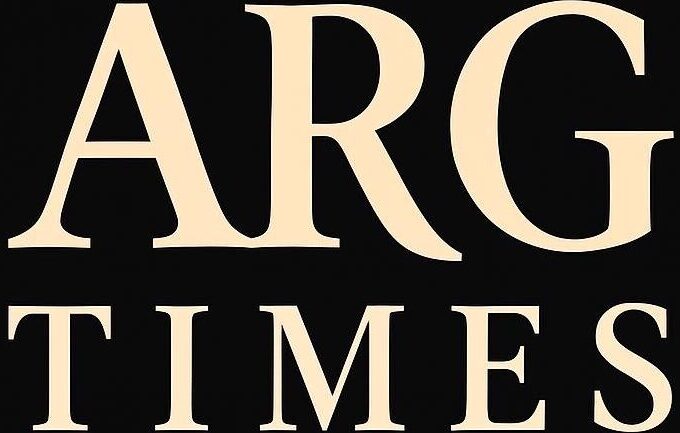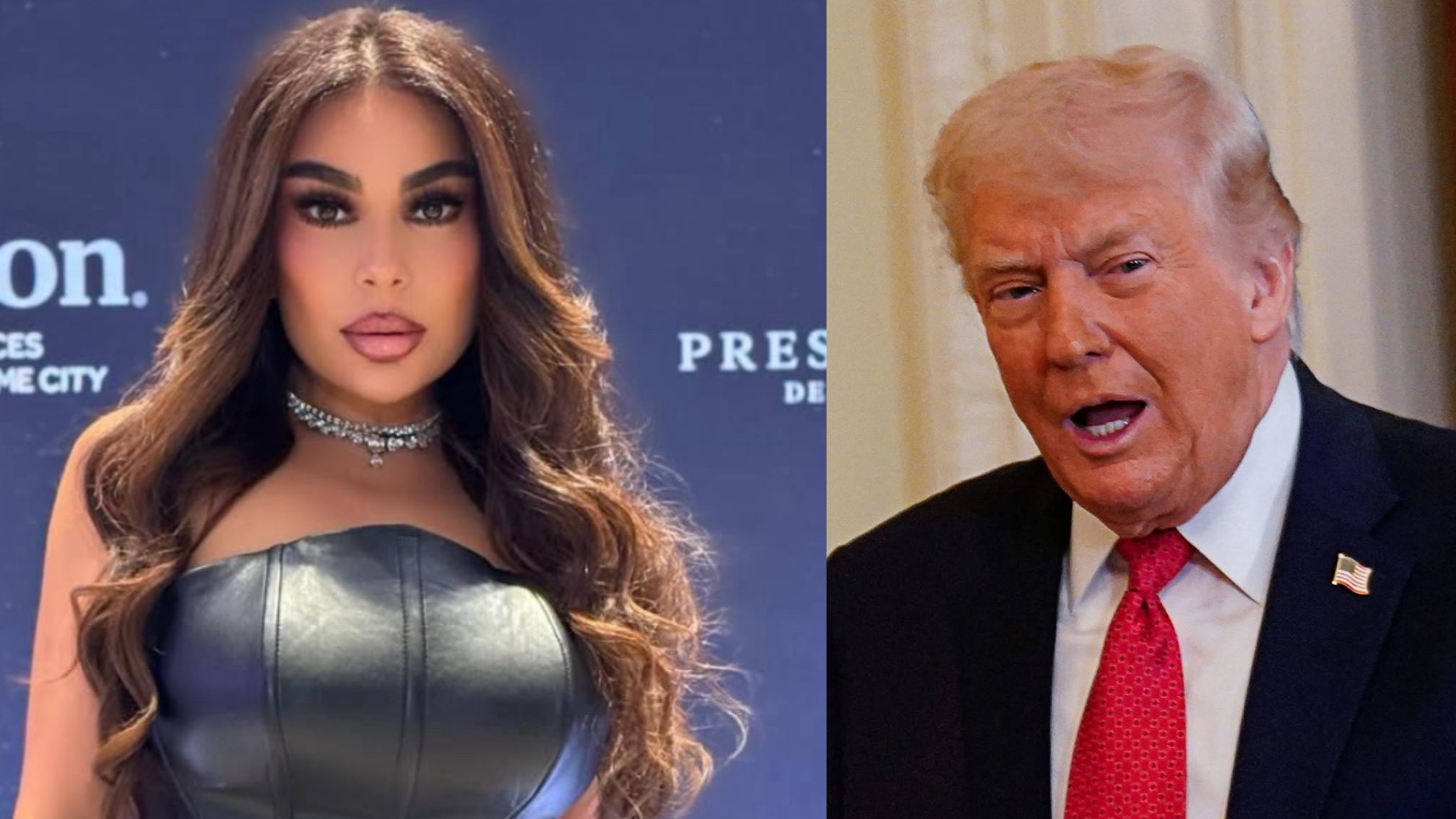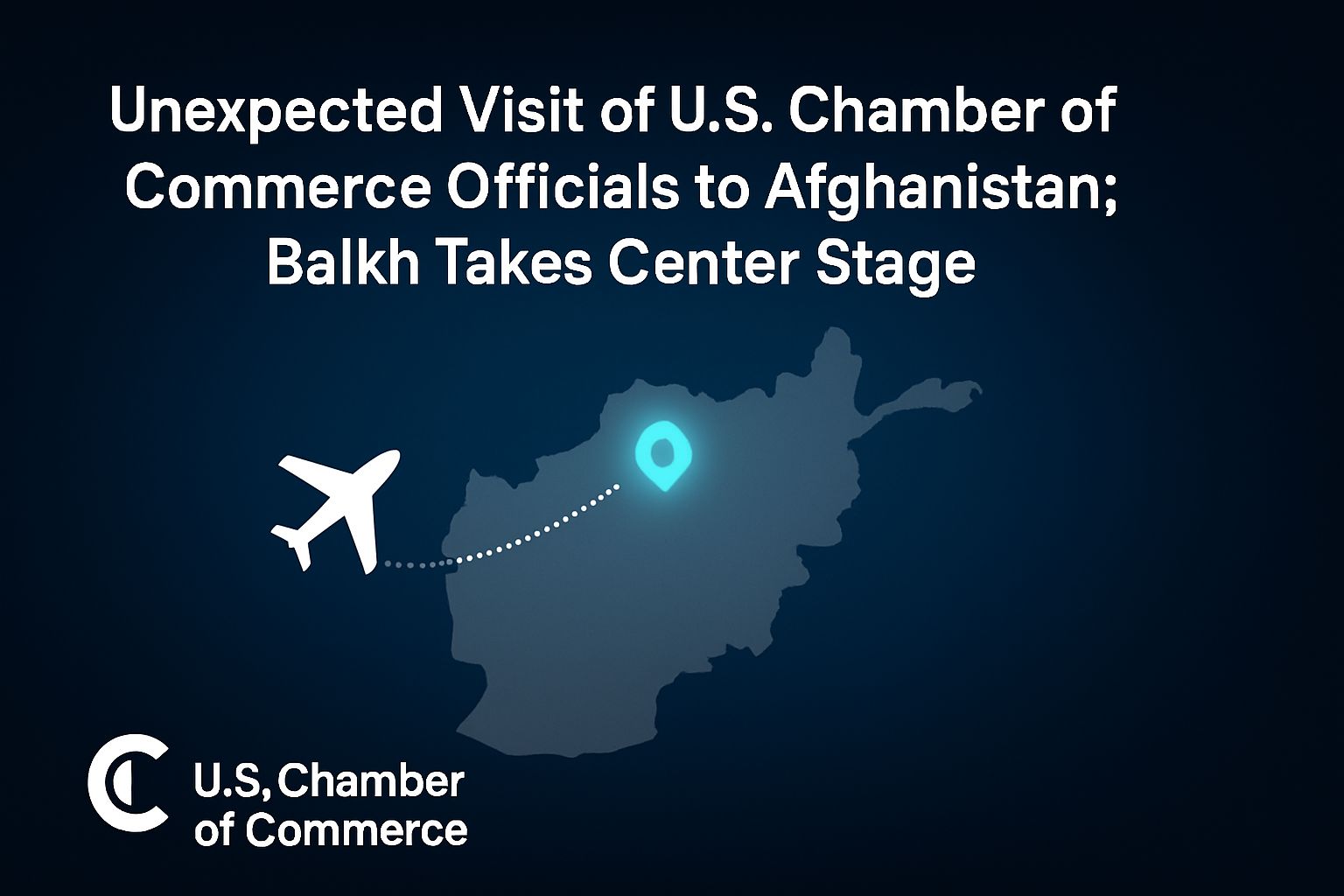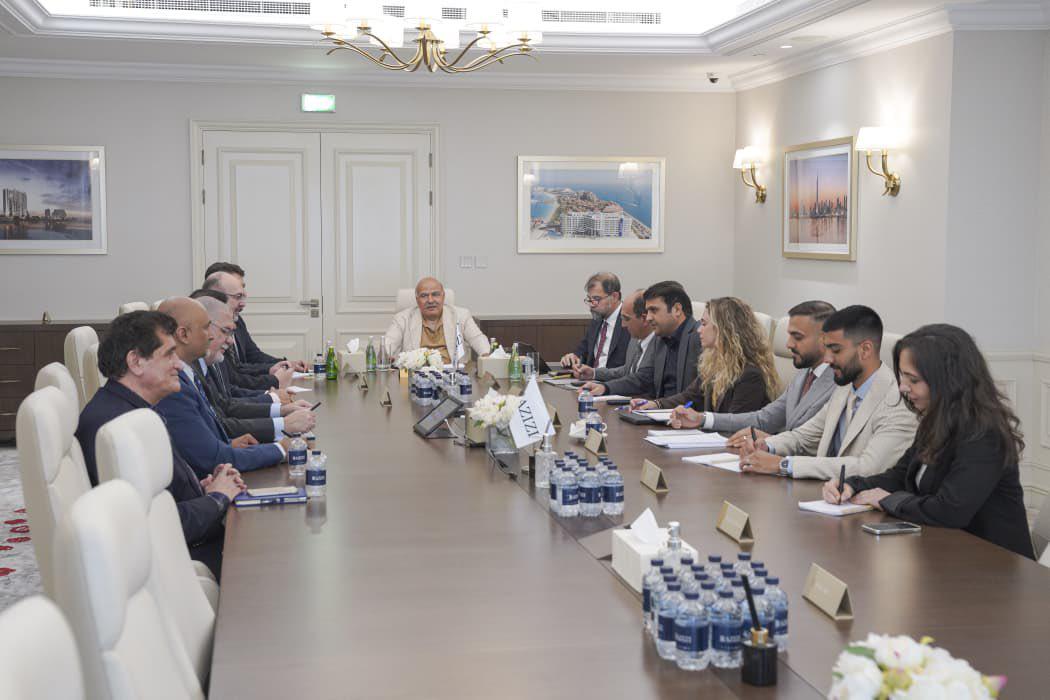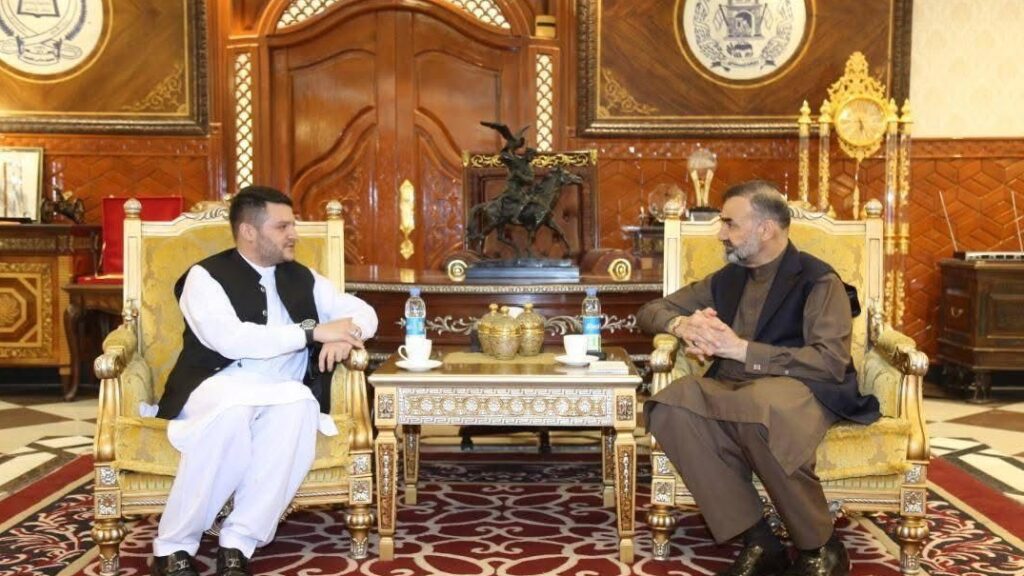
Four years after the fall of the Afghan Republic, the name Khwaja Mahboob Sediki has become one of the political–economic enigmas linked to the fate of the Islamic Society (Jamiat-e Islami). He both sells oil and engages in politics, claims to have had commercial agreements with NATO, and has hosted IRGC (Islamic Revolutionary Guard Corps) officials in his home.
Sediki is a figure whose story could narrate one of the most controversial accounts of politics, trade, and perhaps even intelligence activities in Afghanistan. He is a politician and businessman from Parwan province, now at the center of a network stretching from the Jamiat-e Islami office, the Noor faction, to oil warehouses in Iran and commercial towers in Istanbul.
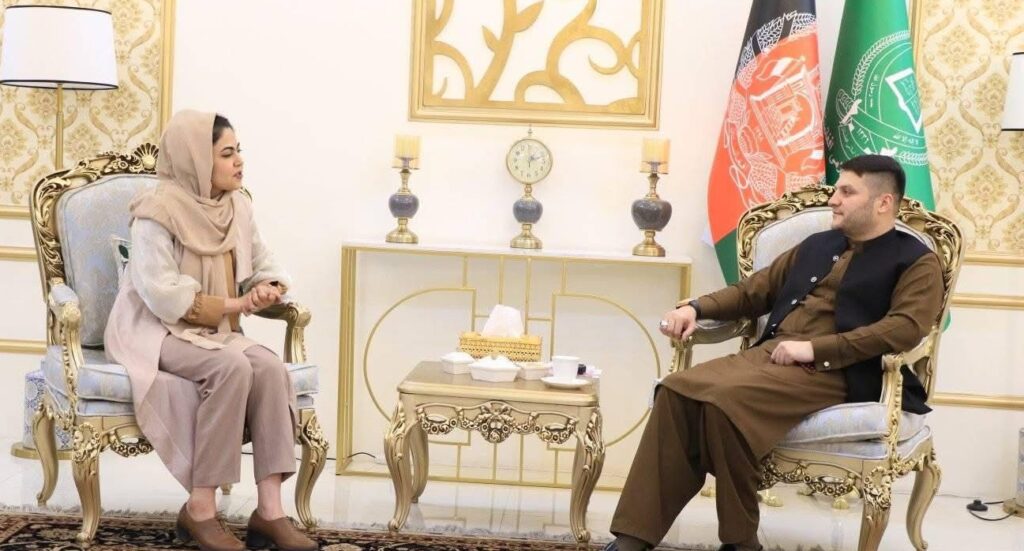
The key question, however, is:
Is Sediki a representative of Jamiat-e Islami, or a proxy for Iranian influence? And more importantly, how far does his relationship go with Atta Mohammad Noor, the most powerful factional leader of Jamiat-e Islami?
A Suspicious Political Leap
In an interview with Arg Times, Sediki claimed that he started his business career by teaching at a private educational center, then became a shareholder in the same center, which opened the gateway to his commercial activities.
However, former Afghan government sources say his major wealth surge occurred when Asadullah Hanif Balkhi, supported by Atta Mohammad Noor, was appointed Minister of Education, and Sediki entered the ministry as an advisor; many view this as the result of Noor’s cabinet share-seeking rather than individual merit.
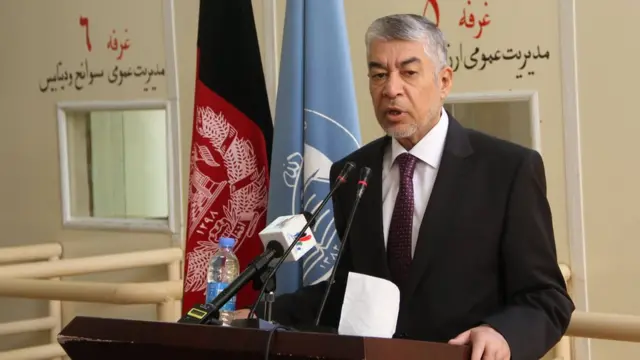
Since 2014, coinciding with the presidential elections, Sediki grew closer to Noor and his wealth increased. However, he denies any financial or commercial partnership with Noor.
In recent years of the republic system, Sediki was active in Farah province and parts of western Afghanistan. Arg Times sources claim that in Farah, for his oil activities, he paid bribes to Basir Salangi, the then-governor—something both sides deny. A former Farah government official told Arg Times that Sediki’s activities were suspicious and provincial leadership officials did not allow him to participate in several official meetings.
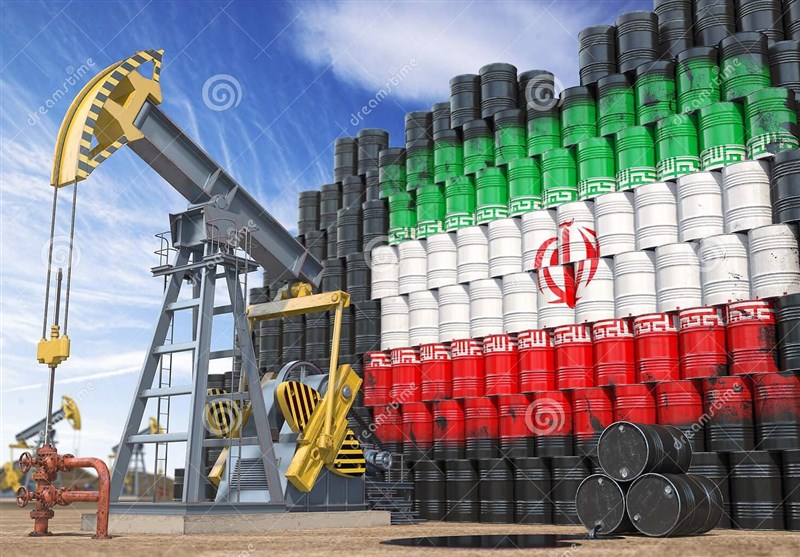
Oil Trade: The Political Red Line
Sediki has confirmed that he has been active in Iranian oil trade for nearly ten years:
“Currently, my trade is inside Iran, and in some cases, there are transit deals between Iran and Iraq that involve oil trade.”
He says his business with Iran has continued for over a decade, and the sale of oil began in 2017—three years after meeting Atta Mohammad Noor.
In his first interview, he stated that until two years ago, he transported Iranian oil directly to Afghanistan. But in later questioning, he revised his account, saying:
“When Afghanistan fell to the Taliban, my direct transfers stopped. I sold my oil to other companies, and they transported it to Afghanistan.”
Was Sediki changing his story to hide direct cooperation with the Taliban? Or were his claims true, and a network of intermediaries actually handled the oil transfers to Afghanistan?
In any case, the core fact may not change: his oil trade continued during the Taliban era, and this could have contributed to funding for the group. Sediki, however, emphasizes that he has had no cooperation with the Taliban and, on the contrary, engages in political opposition against them.
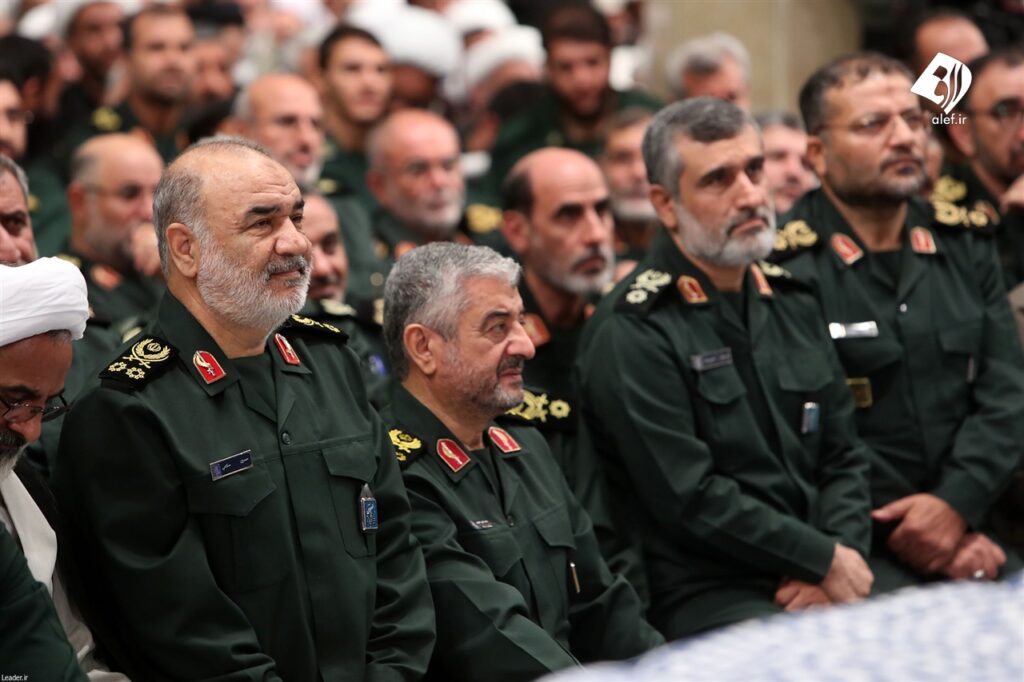
Proximity to the IRGC
Khwaja Mahboob Sediki has publicly hosted IRGC officials in his home in Turkey.
A source at Arg Times who attended a meeting of Afghan politicians with IRGC officials said the gathering took place on February 2, 2025, and Sediki was the host.
When asked, Sediki replied:
“We have held dozens of political meetings with various parties in different countries… I cannot discuss any political questions at the moment.”
This implies he did not deny hosting IRGC officials.
A report by Afghanistan International (February 2025) also notes that figures such as Seyed Hossein Mousavi, former deputy of Qassem Soleimani, Naser Ghazalipour, commander of Ansar Base in Mashhad, and Mohammad Ebrahim Taherian were present. Atta Mohammad Noor and Abdul Rashid Dostum also attended.
Noor’s Partner or Iran’s Pawn?
Reliable sources told Arg Times that Sediki and Noor are partners in the oil trade. This could explain why Noor has not only remained silent in recent years but also fully supported Sediki.
However, Sediki denies any financial or commercial partnership with Noor. Noor’s son, Khalid Noor, also denies any partnership between his father and Sediki.
But if Sediki’s partnership with Noor is accurate, is he an independent Iranian agent, or Noor’s economic arm?
If there are serious direct ties with Iranian institutions, Sediki could serve as Tehran’s channel of influence within Jamiat-e Islami.
Sediki rejects these claims, asserting that his relations with Iran are purely political and humanitarian.
Controversial Trips and Relations with Iran
Sediki has traveled to Iran several times as a representative of Jamiat-e Islami and the Resistance Council:
The first trip was personal but with party credentials, to follow up on the situation of Afghan refugees and to meet with Iran’s Ministries of Interior and Foreign Affairs.
He told Nusrat Parsa, a journalist at Arg Times, that the second trip was with Mohammad Mohaqiq, leader of the Wahdat party, as part of a delegation from the High Council of Resistance.
He claims responsibility for coordinating the issuance of 500,000 work permits and 65,000 five-year residence cards in Iran. Although this role appears humanitarian, it indicates structural links between the Noor faction and Tehran.
Sediki strongly denies any intelligence collaboration with the Islamic Republic of Iran.
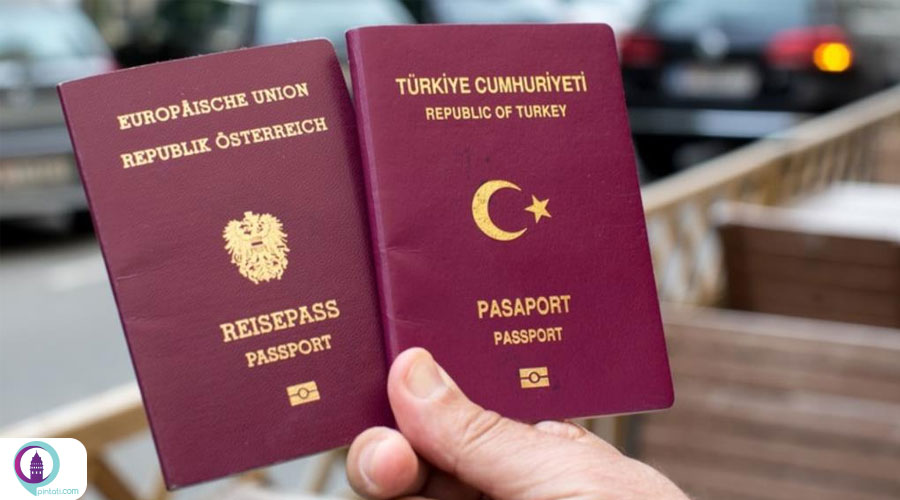
Turkish Citizenship and the Shadow of Passport Mafia
Sediki holds Turkish citizenship, claiming he obtained it through legal trade. However, close sources suggest he was also active in Turkey’s unofficial passport market, and his partner was imprisoned there for the same accusation. His investments in Istanbul reinforce the hypothesis of a multi-layered and opaque economic network.
Sediki denies involvement in any illegal trade in Turkey or anywhere else.
Conflict Between Words and Deeds
Sediki speaks of “fighting for Afghanistan’s freedom,” yet in practice:
He trades oil with Iran,
Invests in Turkey,
And in the structure of the Resistance Council, he advocates political dialogue with the Taliban, while some Jamiat factions are engaged in armed conflict.
Is Sediki really a businessman close to Atta Mohammad Noor, or an Iranian influence agent within Afghanistan’s opposition?
He insists that all these interpretations are incorrect and presents himself solely as an independent politician and businessman.
